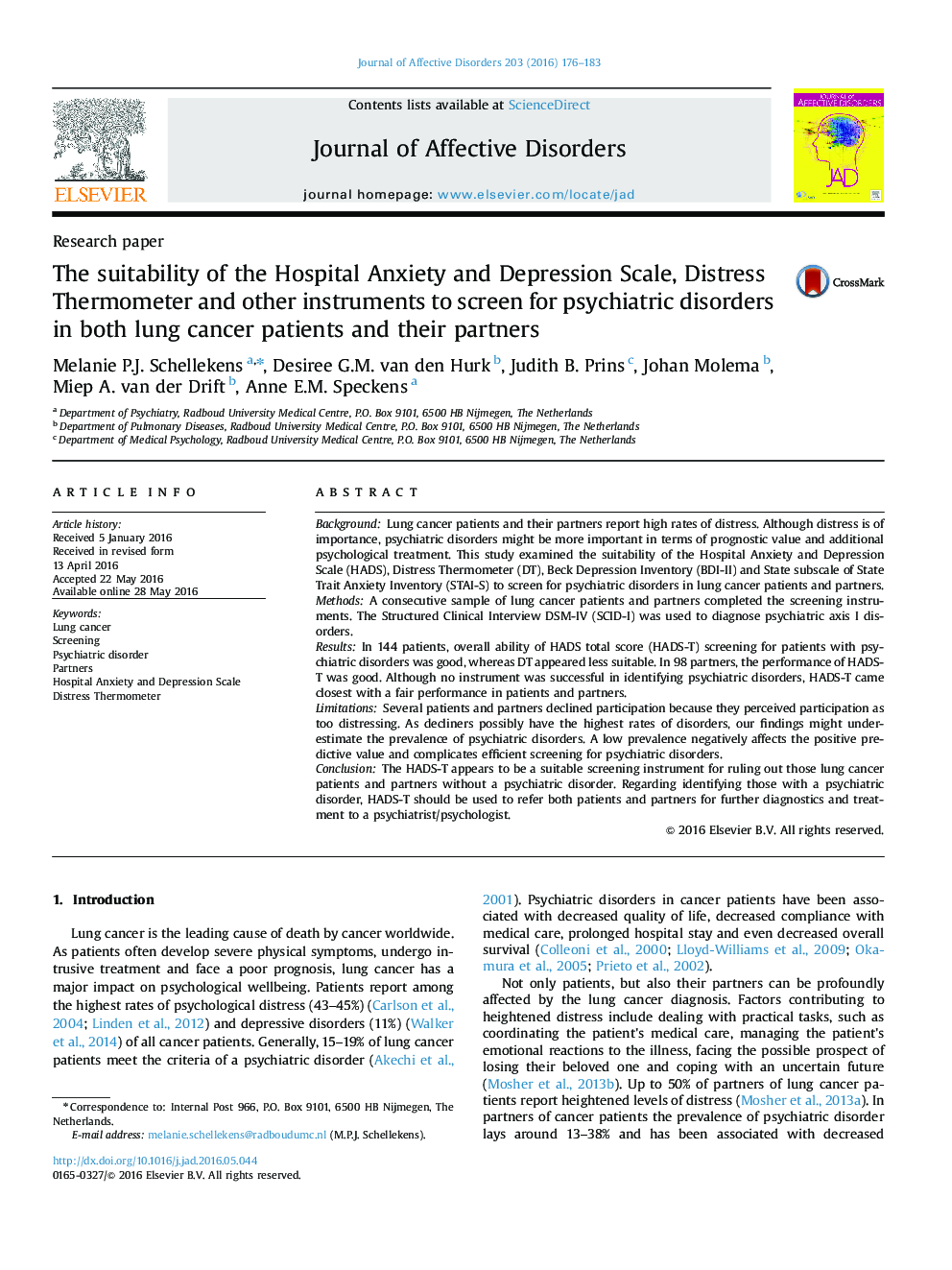| کد مقاله | کد نشریه | سال انتشار | مقاله انگلیسی | نسخه تمام متن |
|---|---|---|---|---|
| 6229869 | 1608122 | 2016 | 8 صفحه PDF | دانلود رایگان |
- Seventeen % of lung cancer patients and 20% of their partners suffer from a psychiatric disorder.
- HADS-T performs good in ruling out those patients and partners without a psychiatric disorder.
- HADS-T should be used as referral for further psychiatric assessment and treatment.
- DT is not suitable as a screening instrument for psychiatric disorders in patients.
BackgroundLung cancer patients and their partners report high rates of distress. Although distress is of importance, psychiatric disorders might be more important in terms of prognostic value and additional psychological treatment. This study examined the suitability of the Hospital Anxiety and Depression Scale (HADS), Distress Thermometer (DT), Beck Depression Inventory (BDI-II) and State subscale of State Trait Anxiety Inventory (STAI-S) to screen for psychiatric disorders in lung cancer patients and partners.MethodsA consecutive sample of lung cancer patients and partners completed the screening instruments. The Structured Clinical Interview DSM-IV (SCID-I) was used to diagnose psychiatric axis I disorders.ResultsIn 144 patients, overall ability of HADS total score (HADS-T) screening for patients with psychiatric disorders was good, whereas DT appeared less suitable. In 98 partners, the performance of HADS-T was good. Although no instrument was successful in identifying psychiatric disorders, HADS-T came closest with a fair performance in patients and partners.LimitationsSeveral patients and partners declined participation because they perceived participation as too distressing. As decliners possibly have the highest rates of disorders, our findings might underestimate the prevalence of psychiatric disorders. A low prevalence negatively affects the positive predictive value and complicates efficient screening for psychiatric disorders.ConclusionThe HADS-T appears to be a suitable screening instrument for ruling out those lung cancer patients and partners without a psychiatric disorder. Regarding identifying those with a psychiatric disorder, HADS-T should be used to refer both patients and partners for further diagnostics and treatment to a psychiatrist/psychologist.
Journal: Journal of Affective Disorders - Volume 203, October 2016, Pages 176-183
